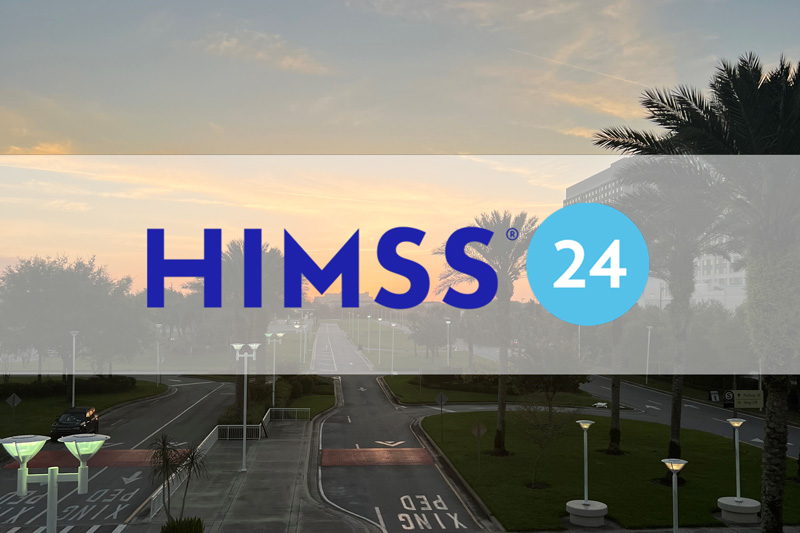With so many sources of clinical and operational information swirling, the healthcare industry is notorious for facing challenges with siloed information. This can result in clinical errors, compromised quality of care, operational roadblocks, and missed financial opportunities. Interoperability, the exchange and utilization of health information across systems, offers a solution.
To advance interoperability, the Office of the National Coordinator for Health Information Technology (ONC) recently introduced the Trusted Exchange Framework Common Agreement, otherwise known as TEFCA. TEFCA encourages hospitals and healthcare systems to implement interoperability measures and defines a universal framework to support this goal. While TEFCA adoption is on the rise, hospitals still require support in meeting interoperability standards. This is where analytics and a robust data strategy come into play.
Why Interoperability?
In healthcare, vast amounts of data exist across disparate systems that don’t always communicate well together. Clinical EHR data, quality measures, and financial information are often housed in separate systems, hindering information sharing within and across healthcare organizations. These outdated, siloed data repositories can pose a major challenge to clinical productivity and patient care.
To address this issue, the ONC developed TEFCA with three core goals:
- Goal 1: Establish a universal policy and technical floor for nationwide interoperability
- Goal 2: Simplify connectivity for organizations to securely exchange information to improve patient care, enhance the welfare of populations, and generate health care value
- Goal 3: Enable individuals to gather their health care information
This set of principles encourages and supports healthcare systems to optimize their health information data-sharing efforts. While previously just an abstract concept, TEFCA offers concrete, unified guidelines for hospitals to advance their interoperability journey.
Having streamlined data sources with strong communication channels can enhance patient care, operational success, and financial outcomes. Studies indicate that advancing medical data exchange can reduce medical errors, alleviate documentation burden, and empower patients with enhanced medical information access. Moreover, interoperability can help tackle global public health issues like chronic disease treatments and infection control. But how can hospitals effectively implement interoperability?
The Role of Analytics
As the principles of interoperability suggest, healthcare data is only valuable if it is easily exchanged and can be turned into meaningful insights. With a constant flow of data from various sources, healthcare organizations need a unified, meaningful approach to make sense of their data. A robust data and information-sharing strategy is the crucial first step towards interoperability.
To start on their interoperability journey, organizations need to assess available data sources and identify methods to integrate them effectively. A powerful analytics solution that provides an integrated and centralized view of all data sources is the key to seamless health information sharing. Enterprise data solutions enhance interoperability by combining previously siloed health information into one standardized, easy-to-navigate platform. This empowers healthcare professionals to perform intuitive analysis and gain valuable insights. Hospitals seeking to adopt an effective approach to interoperability can benefit from implementing a digital solution to transform their data into shareable, trustworthy insights. By embracing such a data-driven solution, hospitals can overcome the challenges associated with manual implementation of business rules and documentation. The result? Streamlined operations, enhanced collaboration, and improved patient care through efficient data exchange.
The ONC framework for nationwide trusted data exchange focuses on four key areas: trust, business, technical, and organizational principles. A strong analytics strategy aligns with these guidelines. Advanced analytics solutions, such as Dimensional Insight’s suite of healthcare applications, help bolster data trust through automated business rules and governance. By leveraging analytics, healthcare organizations can foster enterprise-wide data sharing, facilitating collaboration and promoting interoperability across the industry.
What’s Next
Looking ahead, TEFCA and interoperability are gaining momentum, with many healthcare organizations signing on to adopt the standards as designated Qualified Health Information Networks (QHINs). Some of the first organizations to take this step include CommonWell Health Alliance, Epic, and KONZA, among others. According to National Coordinator for Health IT Micky Tripathi, this is a “significant step for the U.S. health system and one that will advance interoperability at scale for patients, health care providers, hospitals, public health agencies, health insurers, and other authorized health care stakeholders.”
As more organizations embrace interoperability, the demand for data support will rise. To succeed in interoperability adoption, healthcare organizations should implement an advanced data strategy supported by an analytics solution. Analytics plays a pivotal role in bridging data silos, enabling organizations to create a unified ecosystem for efficient data flow and exchange. By harnessing the power of analytics, hospitals can unlock the full potential of interoperability, driving improved healthcare outcomes.
- Why We’re Best in KLAS—Again! - February 7, 2024
- Building a Greener Healthcare System with Data Analytics - January 22, 2024
- Hospital Finance Predictions for 2024 - January 8, 2024



